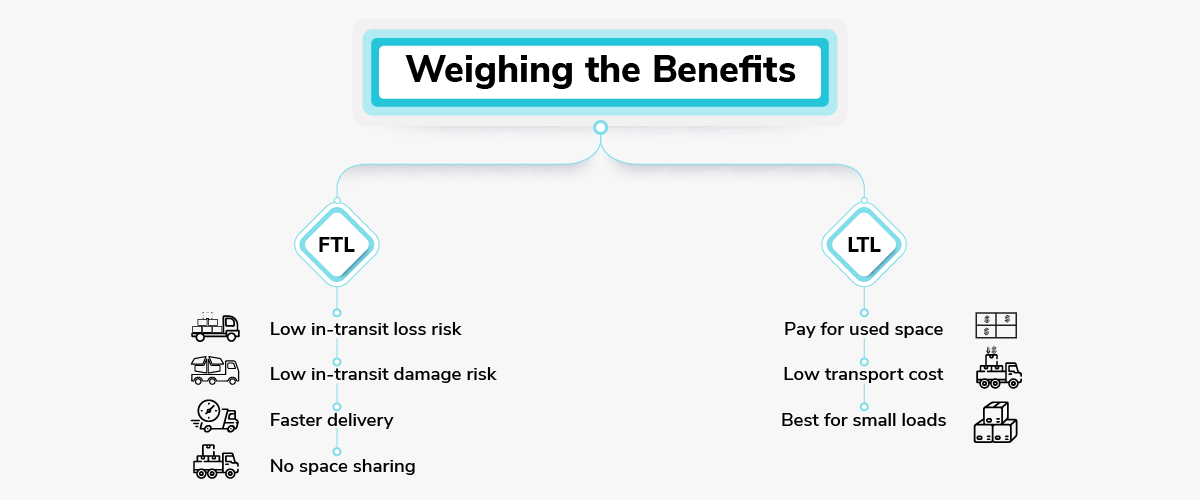When it comes to shipping goods, making the right choice between Full Truckload (FTL) and Less-Than-Truckload (LTL) logistics is crucial. These two options cater to different needs and have their own advantages and cost implications. In this article, we’ll break down the key differences between FTL and LTL logistics, helping you make an informed decision. We’ll also explore how Horizon Fast Freight can assist you with both FTL and LTL transportation.
Understanding FTL and LTL Logistics
Full Truckload (FTL)
FTL, as the name suggests, involves dedicating an entire truck to a single shipment. This means your cargo occupies the entire truck from point A to point B. FTL is typically chosen when you have a large volume of goods to ship and you want your shipment to be the sole occupant of the truck. It’s like having a taxi all to yourself.
Less-Than-Truckload (LTL)
On the other hand, LTL is the choice when your shipment only fills part of the truck. In LTL logistics, your goods share space with other shipments on the same truck. It’s like carpooling for your cargo. This is cost-effective for smaller shipments that don’t require an entire truck.
Key Differences Between FTL and LTL
- Cost-Effectiveness
- FTL: FTL is cost-effective when you have a substantial volume of goods to ship. Since you’re paying for the entire truck, the cost per unit tends to be lower for larger shipments.
- LTL: LTL is more cost-effective for smaller shipments. You pay only for the space your goods occupy, making it an economical choice for partial truckloads.
- Delivery Time
- FTL: FTL shipments usually have faster delivery times as there are no stops for other cargo. Your goods go directly from pickup to delivery.
- LTL: LTL shipments may take a bit longer since the truck makes stops to pick up and drop off other shipments along the way.
- Risk
- FTL: Your goods are the only cargo in the truck, reducing the risk of damage or loss due to handling other shipments.
- LTL: There’s a slight risk of damage in LTL due to handling other cargo, but reputable carriers take precautions to minimize this risk.
- Space
- FTL: You have the entire truck to yourself, ensuring all your cargo fits perfectly.
- LTL: Your goods share space, and there’s a limit to the space you can use.
Making the Right Choice
When should you opt for FTL or LTL services? It depends on your specific needs:
- Choose FTL when you have a large volume of goods, need faster delivery, and want to minimize the risk of damage.
- Opt for LTL when you have smaller shipments, are looking for a budget-friendly option, and can be a bit flexible on delivery times.
Horizon Fast Freight’s FTL and LTL Solutions
Horizon Fast Freight understands the importance of offering both FTL and LTL logistics options to meet the diverse needs of our clients. We provide dedicated account managers who can help you make the right choice, ensuring your cargo reaches its destination efficiently and cost-effectively.
Our Full Truckload Service (FTL) is designed to handle large shipments, guaranteeing speed and security. For smaller loads, our Less-Than-Truckload Service (LTL) offers the cost-effective solution you need. Whichever option you choose, Horizon Fast Freight is committed to delivering your cargo with care and expertise.
In conclusion, making the right choice between FTL and LTL logistics depends on the size of your shipment, your budget, and your delivery timeline. Horizon Fast Freight is here to assist you in selecting the most suitable option, ensuring your cargo reaches its destination most efficiently and cost-effectively.
